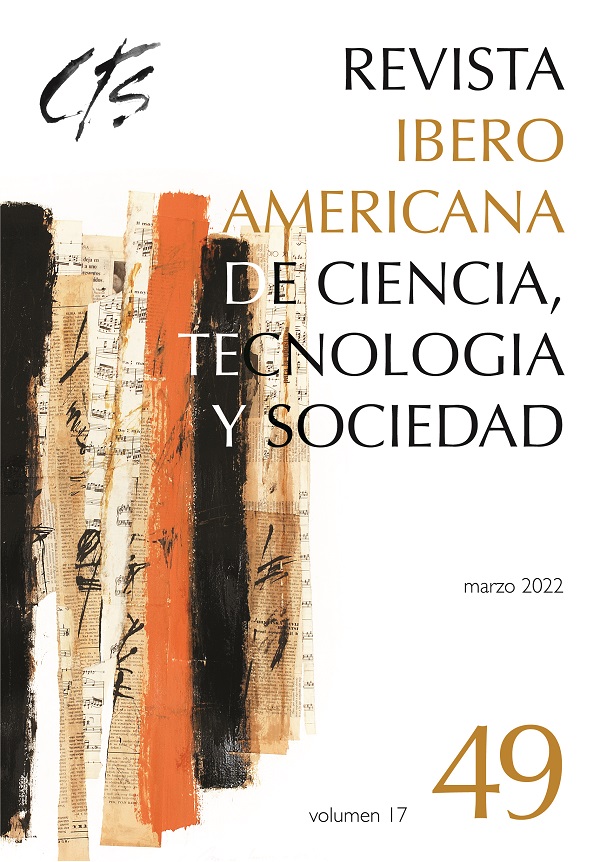Situation and Proposals Made by Students, Academic and Administrative Women of UNAM Regarding the Impact of the COVID-19 Pandemic
Keywords:
COVID-19, gender, university comunity, women's practicesAbstract
This paper presents the first stage of a study on the gender situation of students, academics, and administrative women workers of the National Autonomous University of Mexico (UNAM, due to its initials in Spanish). It focuses on the conditions in which they work, live and solve their daily personal and work tasks. It also concerns the proposals and practices they are developing to face the current context of the COVID-19 pandemic and its severe health, social, labor, economic and personal life consequences. This paper contemplates the realization of conversations, interviews and self-reflection groups, as well as the systematization and incorporation of information from research on the subject. The feminist perspective is the theoretical and methodological framework to approach and base the research. Results will enrich the amount of information, analysis, dissemination and recognition of women's lives in the university, as well as the resources they propose to face the pandemic and its consequences.Downloads
References
Blazquez Graf, N. y Bustos Romero, O. (2013). Saber y Poder. Testimonios de directoras de la UNAM. México: CEIICH y DGAPA-UNAM.
Blazquez Graf, N. (Coord.) (2014). Evaluación Académica: Sesgos de Género. México: CEIICH y UNAM/CYTED.
Buquet A., Cooper, J. A., Mingo, A. y Moreno, H. (2013). Intrusas en la Universidad. México: PUEG-IISUE y UNAM.
Castañeda Salgado, M. P. (2014). Las mismas pero diferentes: mujeres indígenas entre la comunidad y la universidad. Quaderni Di Thule, Centro Studi Americanistici Circolo Ameridiano Onlus, 731-738.
Castañeda Salgado, M. P. y Sacristán, T. O. (Coords.) (2013). Investigadoras en la UNAM: trabajo académico, productividad y calidad de vida. México: CEIICH-UNAM.
Castañeda Salgado, M. P., Mendoza Villavicencio H. y Olivos Santoyo, L. (2019). Vivir y transitar en Ciudad Universitaria. Diagnóstico participativo sobre el estado del derecho a la movilidad libre y segura en el campus central de la Universidad Nacional Autónoma de México. México: CEIICH, DGACO y UNAM.
Chapa Romero, A. C. (2020). Incorporación de una perspectiva feminista para el acompañamiento psicológico en casos de violencia de género en las instituciones de educación superior. En R. Güereca, M. G. Huacuz y E. Martín (Coords.), Estrategias de intervención ante la violencia por motivos de género en las instituciones de educación superior (121-140). México: UAM.
Fals Borda, O. (1986). Historia doble de la Costa. Universidad Nacional de Colombia. Banco de la República: El Ancora.
Méndez Torres, G. (2013). Mujeres Mayas-Kichwas en la apuesta por la descolonización de los pensamientos y corazones. En G. Méndez Torres, J. López Intzín, S. Marcos y C. Osorio Hernández (Coords.), Senti-pensar el género. Perspectivas desde los pueblos originarios (27-61). Guadalajara: Red Interdisciplinaria de Investigadores de los Pueblos Indios de México, A.C., Red de Feminismos Descoloniales, Taller Editorial La Casa del Mago.
PUEG-UNAM (2012). Actualización. Presencia de mujeres y hombres en la UNAM: una radiografía. Personal administrativo. México: UNAM.
Rose, H. (1983). Hand, Brain, and Heart: A Feminist Epistemology for the Natural Sciences. Signs, 9(1), 73-90.
Downloads
Published
How to Cite
Issue
Section
License
All CTS's issues and academic articles are under a CC-BY license.
Since 2007, CTS has provided open and free access to all its contents, including the complete archive of its quarterly edition and the different products presented in its electronic platform. This decision is based on the belief that offering free access to published materials helps to build a greater and better exchange of knowledge.
In turn, for the quarterly edition, CTS allows institutional and thematic repositories, as well as personal web pages, to self-archive articles in their post-print or editorial version, immediately after the publication of the final version of each issue and under the condition that a link to the original source will be incorporated into the self-archive.











